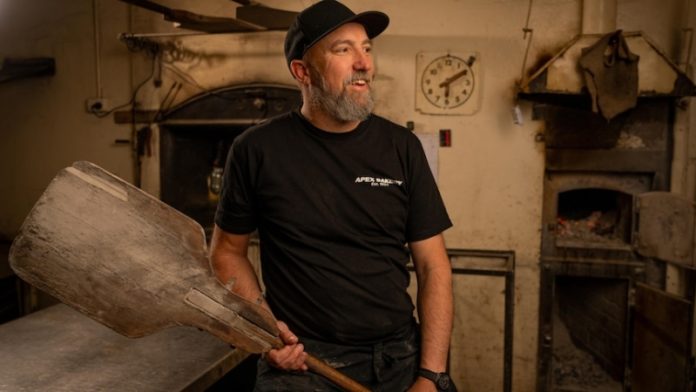Corey Fechner says ovens like his "aren't common at all" but some people are moving to resurrect them. (ABC News: Che Chorley)
Third-generation baker Corey Fechner is passionate about long-ferment sourdough, his grandfather's tried and tested recipes, and their 100-year-old Scotch wood-fired oven.
It's the beating heart of their bakery, nestled in South Australia's Barossa wine region, and hasn't missed a day of work since it was built in 1924.
"As far as we know, this is the longest continuously running wood-fired oven in Australia," Mr Fechner said.
“The recipes my grandfather learnt 99 odd years ago … we ferment all of our doughs for between 10-12 hours, which gives it enough time to be easily digested for our stomachs.”
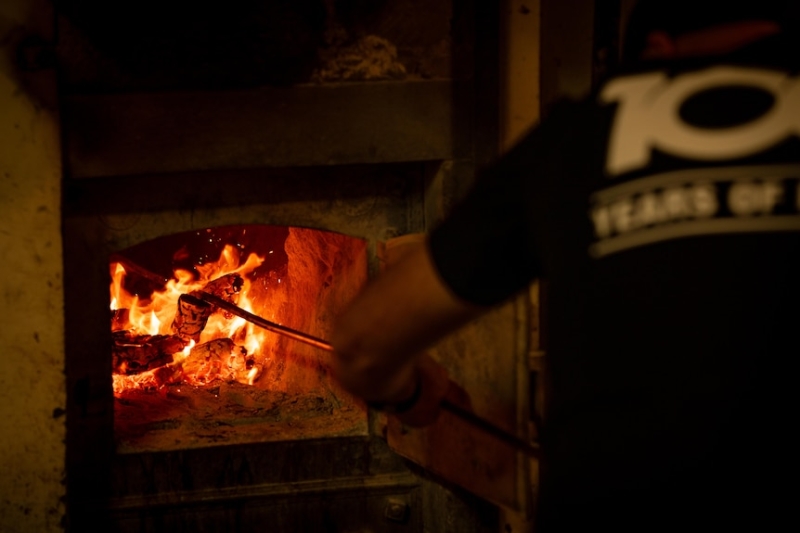
Corey Fechner says his father surprisingly encouraged him not to be a baker due to the long hours and stress. (ABC News: Che Chorley)
Battling big bread
Scotch ovens used to be the golden-brown standard across the country, but Mr Fechner said commercial bakeries and supermarkets extinguished the flame.
"It gave those smaller bakeries a point of difference and the bigger companies didn't like competing with them," he said.
"They came in and bought up a lot of the small bakeries and either shut them down, knocked [the ovens] in or turned them into diesel-fired or gas-fired because it was more efficient."
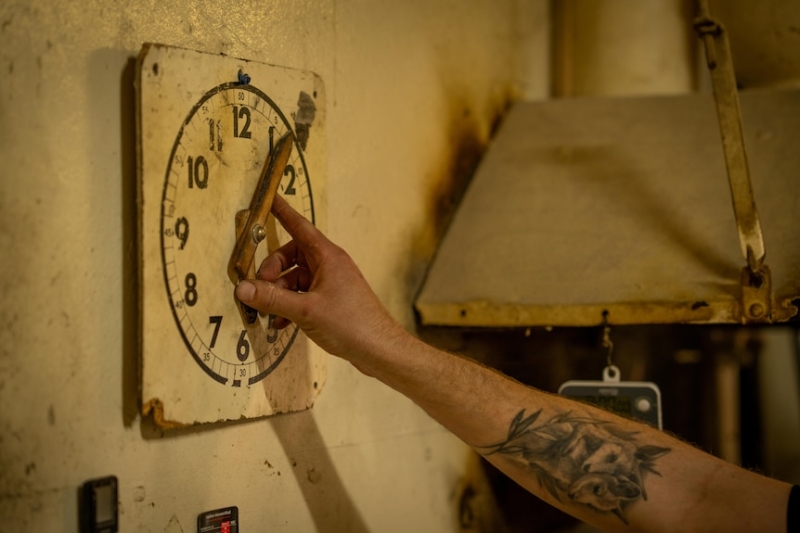
The bakery still uses old-school baking reminders (ABC News: Che Chorley)
But no offer from 'big bread' could stand in their way.
"I won't mention names, but there were a couple of companies that approached my grandfather to try and purchase the business to shut him down," Mr Fechner said.
"He actually ended up working with them for a while and doing some contract baking, but doing it in our own style, so that didn't last too long."
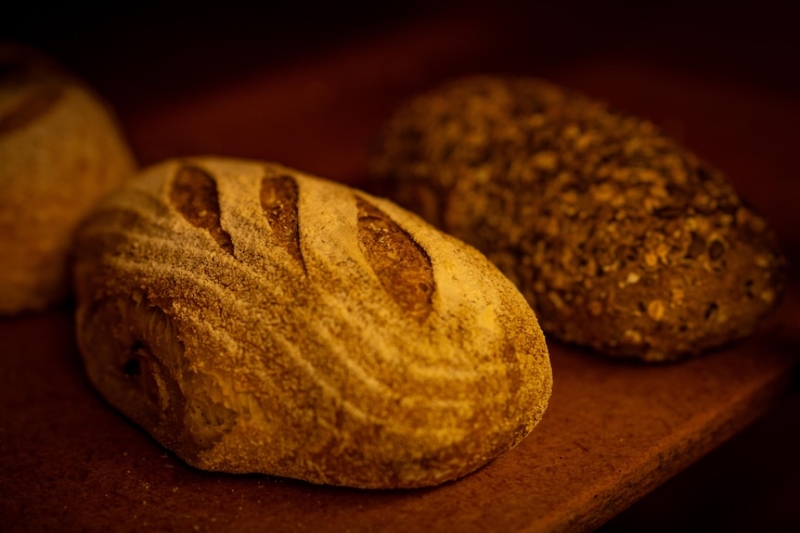
There's a variety of loaves made at the bakery. (ABC News: Che Chorley)
Bun in the oven
Mr Fechner said while the 3am start was a "lifestyle choice", the bakers' schedule was an unbeatable fit for family life.
The early riser is home by 11am and free until the early evening.
"A lot of people that work miss their families in the morning anyway, and they only get to see them when they get home from work," he said.
"In this job you've got that time to spend with them from as soon as school finishes.
"The ones that stick around learn to love it."
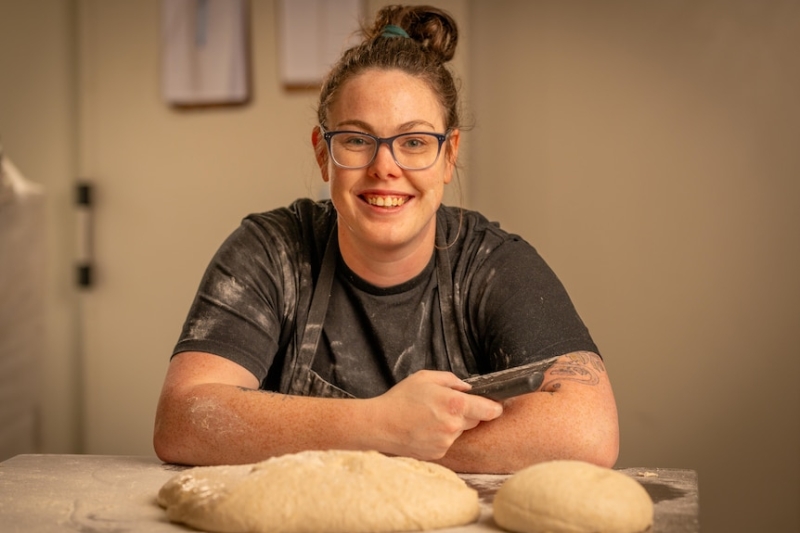
Deanne Miles is happy she became a baker. (ABC News: Che Chorley)
It's a mindset shared by bakers Jaron Dswonitzky and Deanne Miles.
Ms Miles was a mature-age apprentice when she joined the bakery in 2020, as Mr Dswonitzky had been about five years earlier.
He taught her the tricks of the trade and an enduring love, like dough ready to be baked, had risen.
"Things just blossomed as they say," Mr Dswonitzky said.
A few years down the track, Ms Miles finished her apprenticeship at eight months pregnant.
"We had little Rory in December 2022, just two days after Christmas," she said.
"Jaron did a fantastic job. He puts buns in the oven and put a bun in my oven as well."
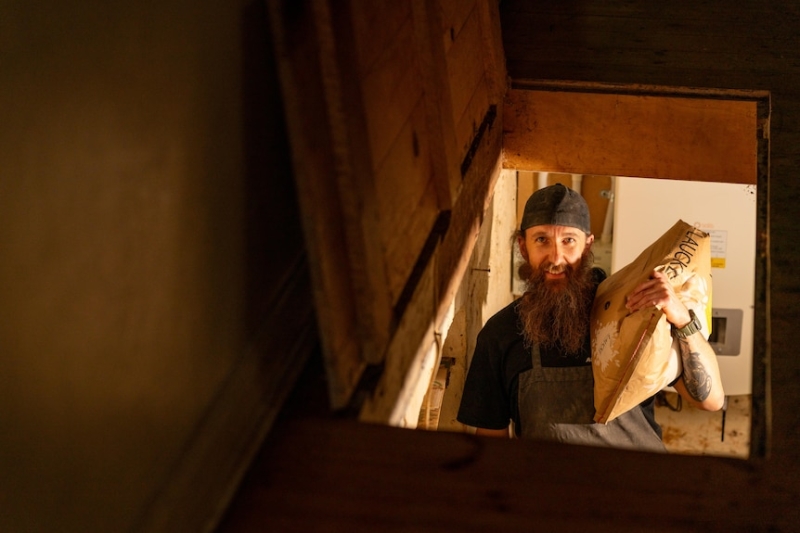
Jaron Dswonitzky and partner Deanne Miles started their family while working together at the bakery. (ABC News: Che Chorley)
Slice of history
Scotch wood-fired ovens are built to last about 50 years, but after doubling that, the beast is not what it used to be.
"Now the coals will go out within a couple of hours, we'll lose temperature, bricks are starting to fall in and we've just lost a lot of efficiency out of it," Mr Fechner said.
"The aim was to get through to 100 years. Now we've done that we can give it some love and hopefully get another 100 years out of."
It's much to the delight of regular customers like Petra Darke.
"[The wood oven] is really cool, and the bread just comes out so nice," she said.
"You walk in first thing in the morning and you just smell the fresh bread, it's really yum.
"I think it's important because mass production, sorry, it just doesn't taste as nice."
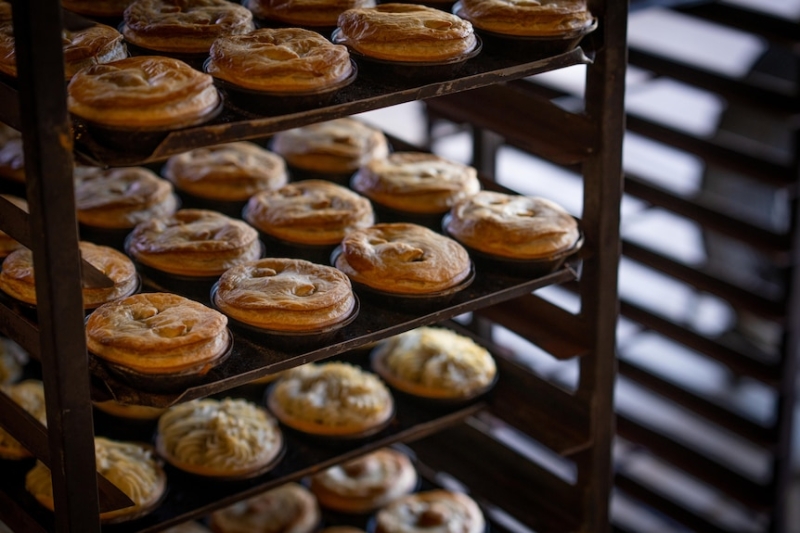
Mr Fechner is working to keep the traditional bakery alive. (ABC News: Che Chorley)
As for the future of the traditional bakery, Mr Fechner said he's seen more specialised 'micro-bakeries' that focus on just sourdough, croissants or doughnuts for example.
"I think that's probably the way most bakeries are going, and the supermarkets will then buy in one from that place, one from that place, and sell all of them," he said.
"It's harder to do a lot of different products and do them well, and make money at the end of the day.
"I hope it doesn't die out, the traditional bakery, but I'm trying to keep it alive as long as possible."

